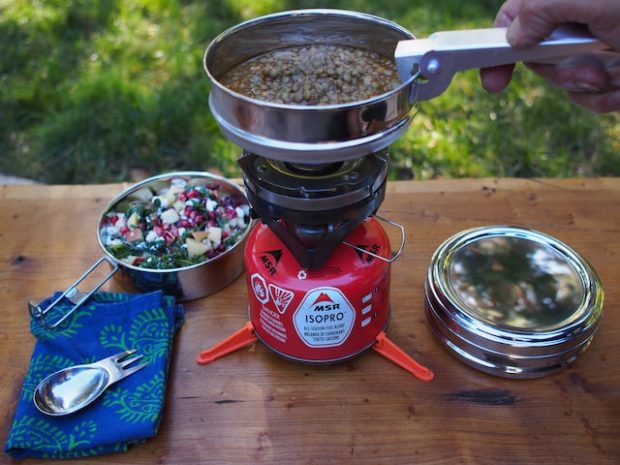Sustainable travel, also commonly known as green travel, is primarily a movement that aims to reduce our impact on nature as we travel. This movement includes reducing our carbon footprint and reducing the physical waste that tourists generate while traveling. As a fellow traveler, you can also be part of this sustainable travel solution by sustainably commencing your travels. Below are some simple tips that you can follow to become a sustainable traveler:
1. Take your own food on hiking:
Traveling does not necessarily mean traveling abroad or taking long journeys. It also includes hiking and camping. You can prepare and bring your food and water in food storage tin containers and reusable bottles on such trips. This way, you can enjoy healthy home-cooked food and reduce your overall carbon footprint by decreasing your dependence on disposable utensils and single-use food containers that come with store-bought food.

While traveling to other regions globally, you could bring more sustainable choices to your food by buying food from local stores and restaurants. This will enhance your experience as you will be able to absorb the local culture and generate some profits for the local shopkeeper, and at the same time help you achieve sustainable travel goals. Buying local food and other produce means that you are reducing your carbon footprint. The closer the item is purchased from where it was produced, the lesser fossil fuel used to transport it, decreasing overall carbon emissions as well. Buying local food will also save you a lot of money as local food is relatively cheaper than imported food.
2. Avoid single-use plastic water bottles:
Single-use plastic bottles and other utensils are the biggest culprits. They are generally a sight one can see around famous tourist spots. You should always avoid using them, and instead, buy a standard reusable beverage bottle to carry and consume water with. Aluminum bottles can come quite handy in these situations, as these bottles are long-lasting, durable and reusable. Thanks to its high recyclability, using aluminum bottles will reduce your footprint. It will also make your traveling easy as you do not have to carry around extra plastic bottles, which take up a lot of space in the backpack. Carrying a reusable aluminum bottle and tins also saves you money as you can easily refill it at public filters rather than buying new bottled water every time you are thirsty.

3. Do not haste your travel:
While on vacations, people want to maximize their holidays and visit a maximum number of destinations at once. This may seem the best thing to do as you will get only one chance to visit that destination, but you will also most likely spend most of your vacation running from one place to another. This can cause displeasure on your trip and increase your carbon footprint, as more traveling means covering more miles and consuming more fuel. Hopping from one place to another will undoubtedly take many destinations off your bucket list, but you cannot make a deeper connection with the locals and thus miss one of the essences of travel.
Furthermore, considering the mode of travel, airplanes and cars are among the most inefficient ways of transportation and are significant contributors to the global carbon footprint. To reduce your carbon footprint and achieve a sustainable traveling goal, it is better to use efficient modes of transportation instead of planes. For example, take a bus ride or a train journey whenever possible, and when exploring destinations in a city, you can carpool. Renting electric bikes and cycles is also one of the cooler and smart ways to explore cities, and of course, it is much greener than conventional transportation.
4. Conserve water and energy
We consume a lot of electrical energy for heating, lighting, cooling, and other things while we are at home or in offices and unfortunately, we carry this habit when we are traveling as well. The reckless and intensive use of power by tourists usually ends up as a waste of energy. Tourists consume more energy and water than the locals as they live in luxurious hotels and suits. These hotels overuse electricity and water to attract customers by creating scenic views. To counter these habits and to conserve energy, turn off lights, TV, and other electronic appliances when not in use. Also, make sure to turn off your AC or heater while leaving your hotel rooms. You can also reduce the amount of time you spend in showers and avoid unnecessary laundering.
Above are a few tips on how to travel sustainably. These tips are only the tip of the iceberg. You can help the environment in many different ways. It is also necessary to note that each small step has a massive ripple effect in saving nature, so do not hesitate to follow small steps. It is essential to enjoy our time and take a break from our hectic lives, but it is also appreciating to take care of nature and become a responsible traveler at the same time.
